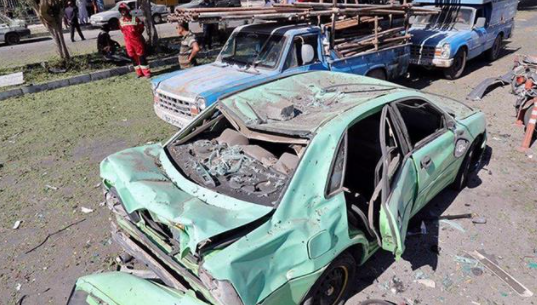March 26, 2021

Sporadic protests continue in the southeast where Baluchis are upset at the Pasdaran’s efforts to limit their ability to sell fuel across the border, the only source of income for many people in Iran’s poorest province of Sistan va Baluch-estan.
In the most violent unrest recently, protesters stormed a Pasdar coast guard station March 12 in Kouhestak after a coast guard patrol reportedly shot at some vessels carrying fuel by water to Pakistan, killing at least one of the “smugglers.”
Gen. Hossain Dehaki, commander of the coast guard in the region, said several coast guardsmen were injured and the violent crowd damaged some coast guard boats plus cars and other equipment as well as injuring “several” coast guardsmen.
In another incident, armed men shot up a vehicle carrying Pasdar troops March 2 in Sistan va Baluchestan province. The government gave no details and didn’t even say if there were any casualties.
And, in a third incident, an explosion in a square in Saravan killed one person and injured three others who were crossing the street.
According to the UN, up to 23 people may have been killed in the protests that first erupted February 22 when Pasdaran fired on Baluchis who were carrying fuel across the border into Pakistan. The government has said only one man was killed in the February 22 incident near Saravan. (See last issue, page one.)
They were labeled “smugglers” by the Pasdaran, but for the last few years the government has allowed some Baluchis to take cheap Iranian gasoline and diesel across the border for re-sale in Pakistan. That was done to allow impoverished Baluchis to have source of income. In a sense, these men became “official smugglers.”
It is not known why the Pasdaran shot at a group of these men in February. There is speculation they may not have paid dues to the Pasdaran for the right to smuggle fuel.
Kouhestak, the tiny port where the latest shooting was reported, is not in Sistan va Baluchestan province but in next-door Hormuzgan province. It is very near the Strait of Hormuz and far from Pakistan. IranWire said the authorized smuggling program was open only to people who lived within 20 kilometers of the Pakistani border, so Kouhestak residents would not have been eligible.






















